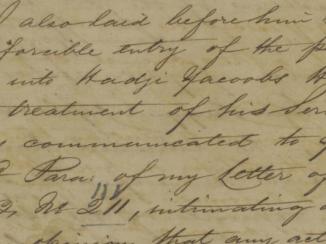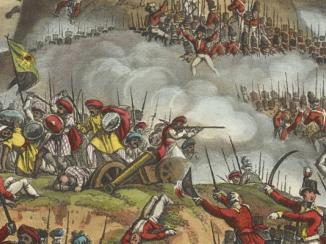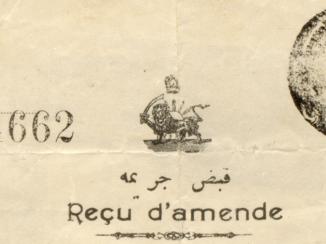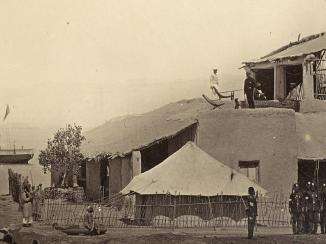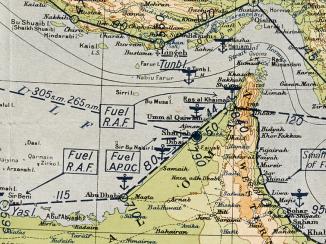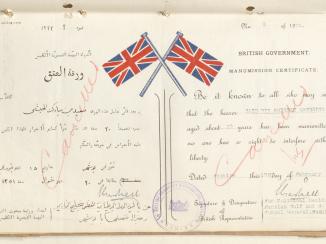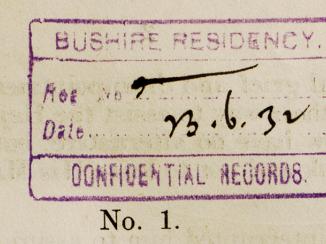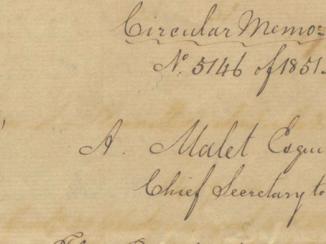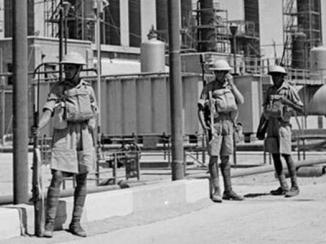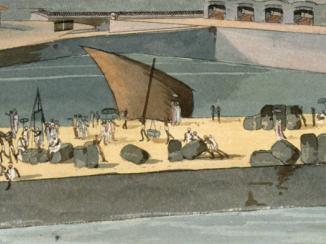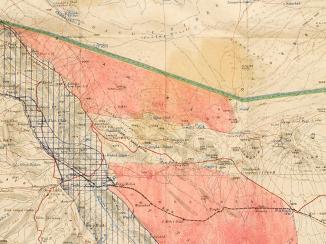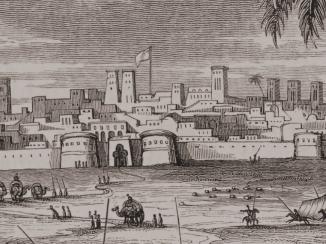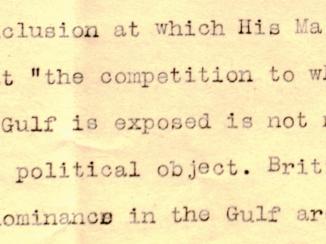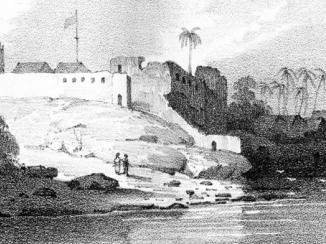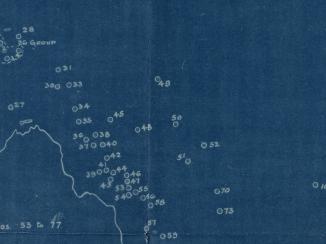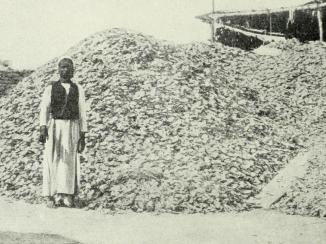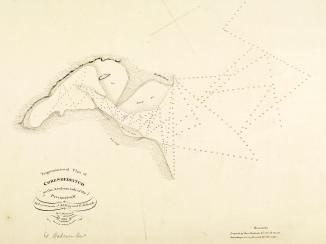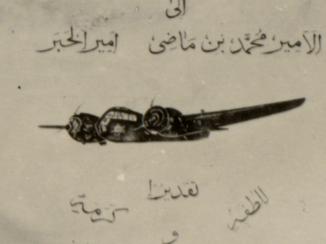Overview
Originating in Europe, the Second World War spread quickly across the globe, to Africa, the Middle East, Asia and the Pacific. Although the Gulf was far from these ‘theatres of war’, its oil reserves made it a target for the Axis Powers.
Within the ‘Zone of Operations’
On 16 April 1942, the Bahrain newspaper Al Bahrain published an announcement to the effect that the islands were now in the ‘zone of operations’ of the Second World War. It advised the residents of the islands’ main towns to evacuate to the beaches, and to send women and children away before the summer. In Manama, residents removed the highly flammable matted roofs of the bazaars, in case of an air strike.
Bahrain had, in reality, been within the ‘zone of operations’ since the night of 19 October 1940, when three Italian bombers staged an ambitious but ineffective raid on the oil refineries in Bahrain and Saudi Arabia. The bombers had flown from their base on the island Rhodes, over 4000 kilometres away in the Mediterranean, to drop around eighty small bombs on Bahrain and fifty on Dhahran on the mainland. Almost all missed their targets. A Foreign Office telegram of November 1940 put the matter quite succinctly: ‘Bahrain is an independent state under British protection and is automatically at war when this country is at war.’
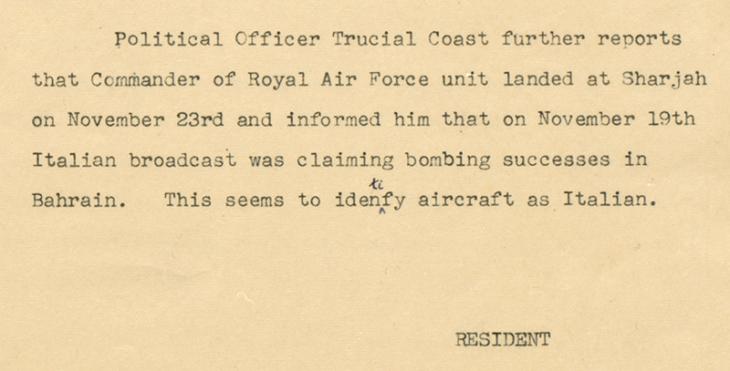
Threats and Evacuations
The raid, though causing very little damage, generated much excitement amongst Bahrain’s inhabitants. In the bazaars, rumours circulated that the raid had been staged by the British in order to drag the United States into the war against the Axis powers. Speculation was also rife as to whether the biggest threat came from Japan in the east, or Germany from the north and west.
In the wake of the raid, British officials reported that while the wives and families of American expatriates on the islands had evacuated in haste, English expatriates were more nonchalant. In spite of this, arrangements to improve the islands’ air defences at Muharraq were well underway.
RAF Facilities
British officials were keenly aware of the strategic importance of their oil-producing protectorates in the Gulf – and they knew that the Axis powers of Germany, Italy and Japan knew this as well.

Through the war, work was undertaken to expand and improve the RAF’s facilities in Bahrain. The British Government acquired more land in order to build a longer airstrip to accommodate bombers, commissioned housing and medical facilities for a squadron of five hundred RAF personnel, and recruited a levy corps to defend the base. In July 1942, the Political Agent A mid-ranking political representative (equivalent to a Consul) from the diplomatic corps of the Government of India or one of its subordinate provincial governments, in charge of a Political Agency. in Bahrain reported that, though ‘this island is not yet an armed fortress […] there were further welcome additions to the strength of its defences’

No further air raids on Bahrain took place, and the Gulf never became the war zone that some British officials feared. However the incident did highlight the exposed nature of the Gulf’s oil refineries, which were a major source of fuel for the Allied forces.



